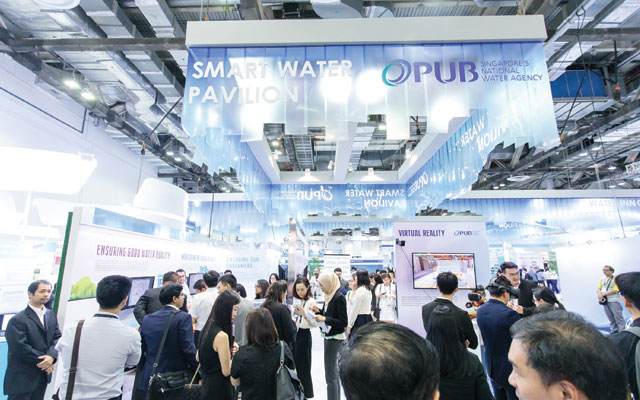The topic of legacy is hot in the associations circle, but corporates can also achieve greater good – more than just commercial goals – for the community of the destination they meet and conduct events in
There is no doubt that when businessmen meet, be it at intimate functions where contracts are inked or at massive conferences where the latest commercial issues are discussed at length, trade is established and money is both spent and made.
But more than just making a beeline for commercial gains, for-profit corporates are also establishing valuable legacies for the communities they are involved in.

One of the clearest legacies of business events and activities is the exchange of knowledge that shape future industry developments, opined Ailynn Seah, vice president of sales – MIC and association, Marina Bay Sands (MBS) in Singapore.
Seah explained: “Many of the high profile events that were hosted at MBS have seen new projects being launched and key announcements being made, which in turn impact related industries within the city-state. For example, during the Singapore International Water Week, the Public Utilities Board launched the Singapore Water Exchange – a new development to house water firms across the industry and further its growth.”
Business events are also an important creator of jobs, noted Didier Scaillet, CEO, Society for Incentive Excellence, who referenced the Economic Significance of Meeting to the US Economy study released earlier this year by the Events Industry Council.
“In terms of impact on direct employment, the business events industry ranked second to healthcare across all industries. Business events create opportunities, empower communities and enhance local livelihoods,” Scaillet said.
Through events, companies are also fulfilling corporate social responsibility (CSR) goals, pointed out both Seah and Scaillet.
Said Scaillet: “CSR plays an integral role in driving employee engagement and building a thriving corporate culture, and has therefore become a critical part of the engagement strategy of organisations. While CSR has become a formal organisational approach to giving back, the actual action of giving back can be very powerful, authentic and transformative for employees.”
He attributed the rise of CSR initiatives during events partially to the millennial workforce. “A survey by Cone Communications found that 65 per cent of millennial employees say an organisation’s dedication to social/environment causes is directly linked to employee loyalty. And, a Towers Watson survey made a direct link between CSR and engagement – specifically calling out CSR as a driver of engagement.”
He added: “The events industry has long supported green meetings and CSR opportunities and with the millennial population, it will likely do even more to push the CSR envelope.”
Within the sphere of corporate incentive travel, inclusion of CSR elements in programmes is on the rise.
According to the Incentive Travel Industry Index, CSR inclusion has risen in Europe (from 38 per to 43 per) and in Asia (from 17 per cent to 38 per cent).
“Across all regions, CSR and sustainability are second only to the national economy in terms of impact of planning and implementation of incentive travel programmes,” Scaillet said.
Seah believes that event venues can be a catalyst for the achievement of CSR goals. She said: “When clients hold events at MBS, our team will first develop an understanding of their meeting objectives – including any requests to incorporate CSR-related or sustainable elements into their programme. We collaborate with the client to ensure that the right community experiences and green initiatives are curated into the meeting design process.
“Our value-add comes from our staff’s expertise and knowledge on the social landscape in Singapore, coupled with MBS’ leadership in CSR.”
Citing examples of how this was recently achieved, Seah pointed to the Schneider Electric Global Innovation Summit and the 7th Responsible Business Forum on Sustainable Development organised by Global Initiatives in collaboration with the United Nations Environment Programme.
For both events which took place in 2018, the MBS team created ‘Earth-friendly’ menus that featured organic, fair trade or Rainforest Alliance Certified, responsibly produced or locally sourced ingredients – a step-up from the venue’s standard green meeting Harvest Menu which offers locally sourced F&B options to reduce food miles.
At the Schneider Electric Global Innovation Summit, the MBS team also tapped on its network of charities to help the organiser channel their leftover event furniture towards a charitable cause.
Seah recalled: “We connected the organiser with the Association for Persons with Special Needs (APSN) and facilitated the donation of 320 furniture items such as shelves, sofas and tables to the organisation. These furniture items were used to furnish APSN’s new Centre for Adults, a sheltered workshop and training centre space for their beneficiaries.”
Summing up the deeper, wider impact of business events, Scaillet said: “The true potential of face-to-face events extends to the heart of society. Events facilitate human encounters, help overcome barriers, build understanding, cultivate connections and promote peace. And that’s why it is more important than ever for the business events industry to embrace our responsibility to advocate for a world that is safe, open, and inclusive.” – additional reporting by Rachel AJ Lee
This article is part of The Soul of Business Events, first published in TTGmice December 2018/January 2019





















